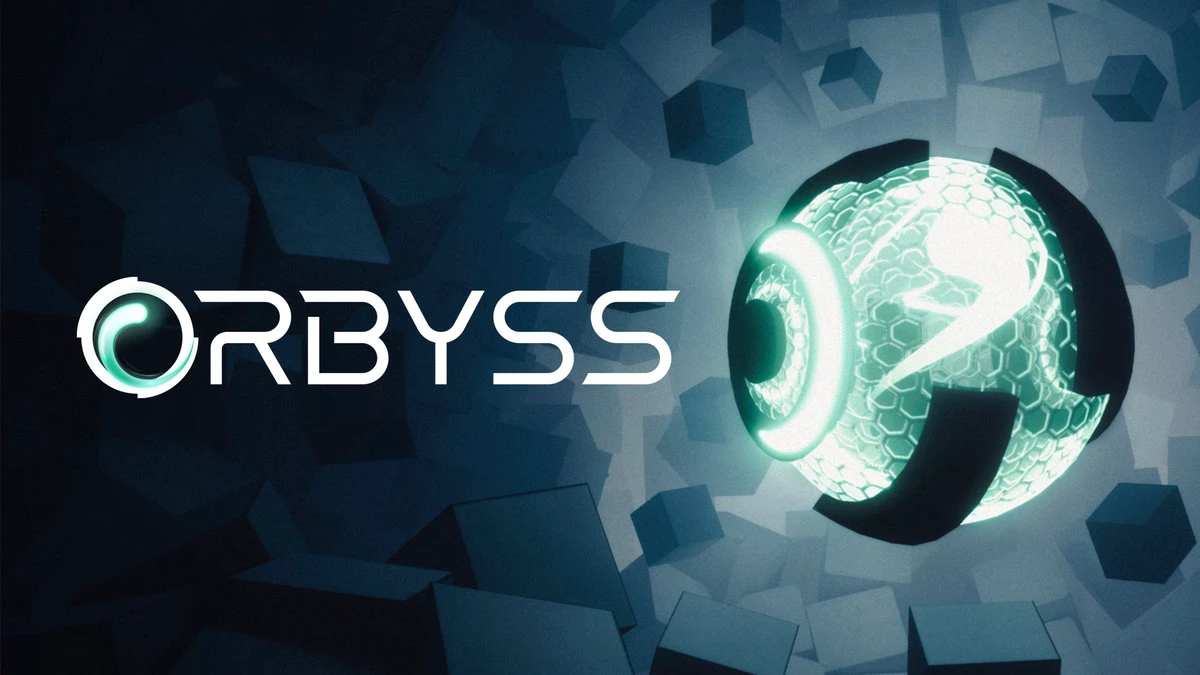Orbyss puts players in the role of a spark of energy in a mysterious, digital dimension where they must take control of mechanical orbs to solve the over 40 well-crafted puzzles to lock the corruption in the depths of eternity. The game begins deceptively simple. Control an orb, leashing around other orbs to press buttons to unlock bridges. It quickly evolves into a web of interconnected mechanics where you freeze time, command drones, orchestrate orbs, and match sounds to unlock the next levels. Misty Whale, led by Solo developer Yannick Audéoud, has crafted a logic puzzle game that rewards planning over reflexes. Trading puzzle games like Portal's elegant minimalism for a broader toolkit of mechanics. The resulting game occasionally feels like it's introducing new rules just to justify another chapter but maintains coherence through its commitment to logic.
Puzzles Focused on Logic
The game consists of eight chapters with 41 levels total. I was able to complete the game in around three hours, not including all of the challenges. As the developer explains, the levels are designed to be almost mathematical. The puzzles in Orbyss seem standard on the surface, but I feel they resemble the logic that goes into something like chess more than in games like Portal. You need to think several moves ahead. When entering a level, the possible moves are clearly laid out, but the real puzzle is figuring out what order to engage with each mechanic. The first few chapters I felt could be completed off intuition, but the difficulty gradually ramps up. There was quite a spike in difficulty at chapter six, where the newly introduced mechanic was a controllable drone that records its movements and then can be replayed. It meant precisely choreographing all the orbs, which really amplified the need to think ahead. Finally, the second to last level of chapter eight gave me some trouble. I had to take a break, but the solution came to me in my sleep at one in the morning. This is the kind of game that occupies your brain between sessions. The game never relied on gimmicks for the solution. There was never a hidden button or an awkward jump. This made getting stuck less frustrating. If I got stuck, I could only blame myself because I know the solution is always in front of me. Being so logic-focused meant the design got out of the way and it really allowed your brain to map out each level.
The variety of mechanics cuts both ways. Portal succeeded with just portals, boxes, and buttons because each was so essential to the core concept. Orbyss instead layers mechanics that don't always feel like they fit. Time freezing, drone recording, and sound matching. Each mechanic opens new solution possibilities without feeling like a natural extension of what came before. They're simply tools added to the kit rather than a revelation of existing systems. I'm not typically one to go for every achievement, but this game's challenges redeem some of these shortcomings and give a reason for a second playthrough. The challenges force creative restraints by limiting the number of times you can use your tools. I didn't complete all of them, but they make even the early simple levels into genuine brain teasers. These challenges function as a hard mode and easily double the total playtime.
Abstract Narrative
The narrative exists but never demands attention. Other orbs solve puzzles in the background while a red wisp creature weaves through the space, occasionally triggering mini-games. Boss fights expand these moments into longer sequences of repetitive puzzles. The story amounts to light versus dark corruption in a pocket dimension of endless pillars, but Audéoud wisely keeps it ambient. What could feel lonely instead reads as communal. You see other orbs working through their own levels, sometimes helping them unlock paths so they can return the favor. The world feels populated despite the single-player structure, a shared space where multiple sparks work toward the same goal.
Sound as a Mechanic and Atmosphere
The audio design deserves a specific mention. Sound plays a functional role in several puzzle types, from matching tones to orb frequencies to playing sequential notes on tower rings. The game handles this well enough to make sound-based mechanics feel integrated rather than gimmicky, though there is a visual cues accessibility option for players who need it. Beyond the puzzles themselves, the audio feedback feels satisfying. It mostly consists of what sounds like minimal UI sound effects. The music also surprised in its quality, providing an ambient backdrop that never overpowered my focus. For a puzzle game, Orbyss managed a sensory richness that keeps the experience from getting too stale.
Conclusion
Orbyss avoids the trap of making you feel like you've broken something. Every solution feels intended and every path lies within the established rules. There are no obscure interactions that make no sense in retrospect. This creates a sense of fairness even on the difficult puzzles. The commitment to logical consistency aligns with Audéoud's stated goal of creating puzzles with "an almost mathematical aspect." I believe chess players will find a familiar satisfaction with the need to think several moves ahead, position pieces correctly early or face failure later, and see the board as a system rather than isolated problems.
Orbyss releases on Steam on October 27th.


